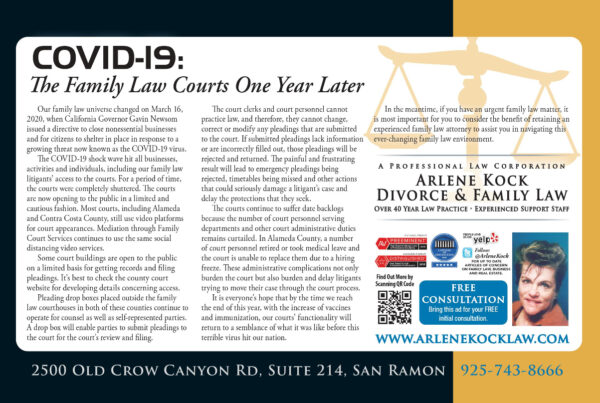“With many households now debating their holiday plans, a large number of people will face the prospect of yet another holiday season on their own.”
“You’re free to go,” the judge says, looking down to where I stand alone in front of a bare wooden table.
“Thank you,” I say, feeling lightheaded. I slide the papers the bailiff handed me into a brown accordion folder and turn to look at my friend Ashleigh, standing behind me in the completely empty courtroom. My mind strangely blank, I follow her out into the quiet hallway. I take a deep breath as she turns to hug me, steadying myself as relief and sadness swirl together in my body.
I’m divorced.
My divorce was finalized on Dec. 23, 2019: two days before Christmas and just a few months before my city (and most of the rest of the country) went into lockdown due to COVID-19. The arrival of my 32nd birthday on March 14 marked the last day I spent time indoors with anyone except for my cats for weeks.
For those early days following the stay-at-home order, I felt overwhelmed by anxiety: Will the nonprofit I run survive? How long will I have to stay home? Will I ever get to hug anyone again?
While many of my friends wrestled with the difficulties of having children in virtual school or navigated the tensions of working from home next to their spouse, I found myself deeply envious that each of them had a human being to hug and kiss at the end of each day. I told myself that everyone was facing hardship — that I had so many things to be grateful for — and yet despite my best attempts, my mental health deteriorated.
Even before the pandemic hit, I was knee-deep in post-trauma recovery work in therapy. Unwinding oneself from a relationship usually involves some measure of identity exploration, but the healing process from a traumatic marriage necessitates an entire rebuilding of self. And as the pandemic hit just a few months into that process, I was left reeling with the prospect of facing that recovery while in quarantine. At one point, just a week or two into lockdown, I wondered if the world would be shut down in some manner forever. Am I going to end up alone for the rest of my life?
I wasn’t the only one. Even before the pandemic, mental health challenges were on the rise — but the isolation brought by COVID-19 has made them even more pronounced for many people, particularly for adolescents.
Thankfully, I was lucky: I had the financial resources to continue virtual sessions with my therapist, a safe apartment to call home and a close group of friends and family to lean on (albeit not physically) through those early weeks. As I read reports about the rise of domestic violence during lockdown, I felt grateful to be safe when so many others were not.
“When I faced depression and loneliness at the start of COVID, I needed to know I mattered.”
Little by little, I found ways to lessen the loneliness that at times felt overpowering. After six weeks of isolation, I created a bubble with my best friend. We spent our days after work walking through D.C. and watching trashy reality TV on each other’s couches. I experimented with virtual dates on Hinge and Bumble and met up with people for picnics in parks. And as the 2020 holidays approached, I set up new holiday rituals: lighting the Hanukkah candles each night over Zoom with a different important person in my life and baking Christmas cookies with my mom over FaceTime.
The arrival of vaccines and booster shots allowed me to hug the friends I hadn’t touched in months and fly across the country to see my mom, dad and stepmom for the first time in almost a year and a half. Living alone, something I had looked forward to doing after my divorce for the first time in my adult life, slowly stopped being painful and began to feel calming – even freeing.
But suddenly, over the last week, things began to change. Omicron started to surge.
With omicron flying into our lives faster than most of us know how to handle, the last few days have felt, to put it mildly, alarming. In many states, hospitals are either nearing or have reached max capacity. The quickly spiking infection rates across the country do not seem to be slowing down. And while early reports indicate that vaccines and boosters help prevent severe illness, scientists are saying that the transmission rate of the variant is high.
Among the 30-somethings in my orbit, the conversations have felt like an eerie echo of March 2020. “Who have you seen recently?” “My throat hurts, do you think I could have been exposed?”
With many households now debating their holiday plans, a large number of people will face the prospect of yet another holiday season on their own. According to the U.S. Census Bureau, roughly 28% of Americans live alone ― a percentage that has nearly tripled since 1950. Nearly 50% of Americans are single and as of 2016, 34% of women and 33% of men have been divorced at some point in their life. The holidays have always been a hard season for those without immediate family to spend it with, but the loneliness brought on by the pandemic adds another layer of difficulty to an already challenging time.
Over the last few days, I’ve heard my friends debate about what to do for Christmas and New Year’s. “Are you still flying home?” “Is your family canceling Christmas?” “Can we do immediate family only?” These conversations are the right ones to have. We need to take immediate action if we’re going to be able to slow the spread of this variant.
And yet, as someone who lived alone in the early days of the pandemic, I feel the anxiety and dread rising quickly with every new discussion. As I consider the shutdowns that are already spreading across my city, I of course think about those facing abusive relationships at home. I think about parents facing virtual learning. I think about children facing life on a screen again.
But I also think about the people who are on their own. Who are facing anxiety as they consider the potential isolation that might be required to battle this variant. Who are wrestling with mental illnesses in silence. Who aren’t sure if they can handle more time without the proximity of loved ones.
As omicron becomes part of our new reality, I can only hope that those who live alone or who are facing the prospect of a holiday season without family are able to find the bright spots of connection in an uncertain future. And that those who might feel most invisible are able to be seen.
When I faced depression and loneliness at the start of COVID, I needed to know I mattered. I needed to know that I was thought about and kept in mind. While my coupled and parent friends held tightly to their significant others or children, I needed to know I had significance too. That despite being physically on my own, I wasn’t without people who loved me.
I was deeply lucky. I did have people in my life who surrounded me with love and support. In the early days of the pandemic, my closest friends sent frequent texts to check in on me. My colleague and her son met me in a park to drop off a care package he had made. I held Zoom calls with friends who I hadn’t been able to catch up with in years. Through their care, I went from feeling completely isolated to discovering how big my community really is.
These little moments of connection are what help. They don’t replace a hug. And they certainly don’t make up for holidays spent without loved ones.
But 21 months ago, they reminded me in my darkest moments that while I might be on my own, I’m never truly alone. As we face a potential return to increased isolation during this holiday season, I hope that’s what we can all hold on to.
This article was first published on HuffPost.



